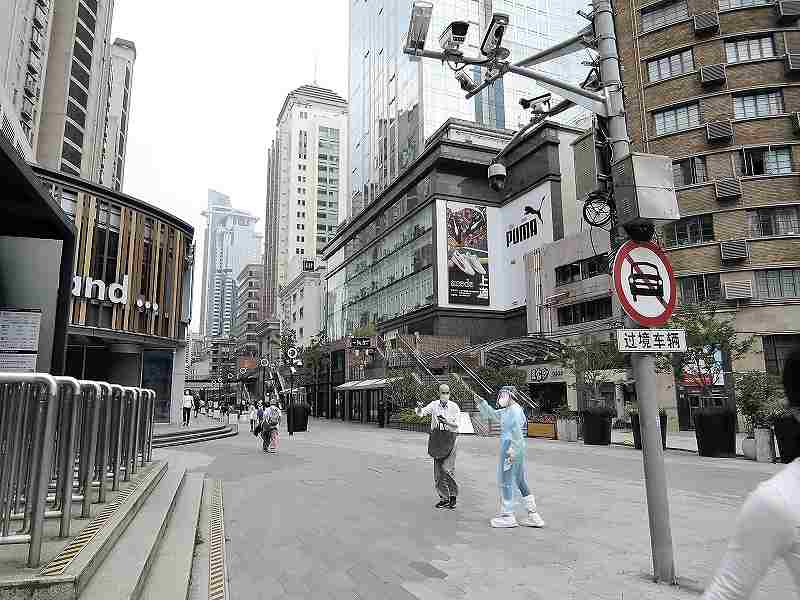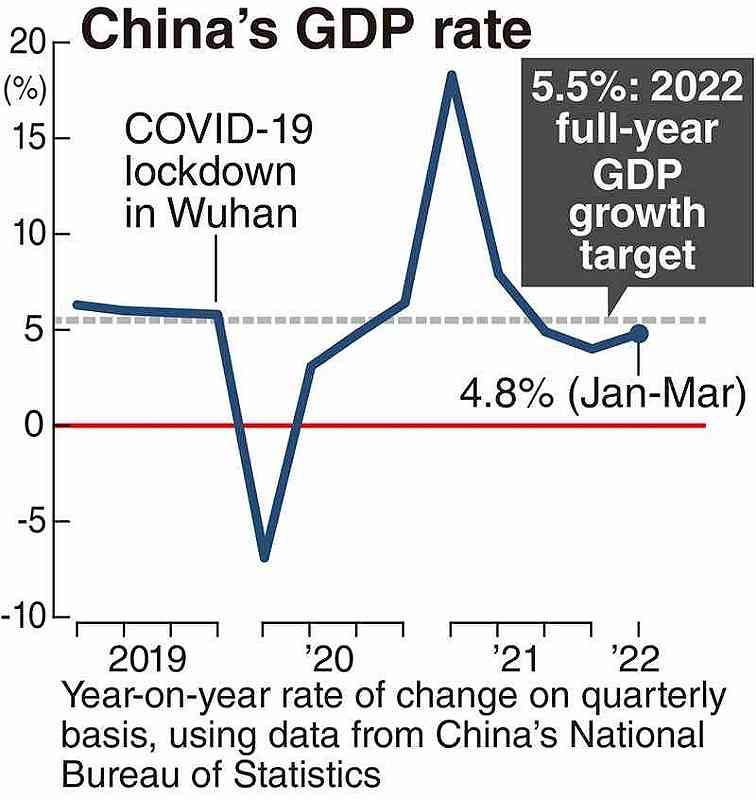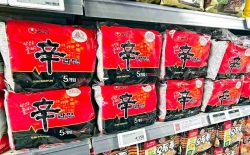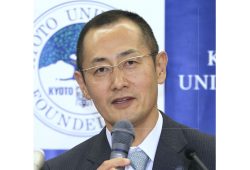
A business district in Shanghai remains largely deserted Wednesday.
16:24 JST, June 2, 2022
SHANGHAI — The lockdown imposed on Shanghai has been lifted after two months, but there is little likelihood of economic activity returning to normal in the immediate future. Although the administration of Chinese President Xi Jinping is scrambling to deal with the aftermath of an approach that prioritized “zero COVID” policies over economic stability, the repercussions likely will continue to be felt in the global raw material and product supply chains.
Shanghai’s Bund riverside district was buzzing as residents savored the end of the lockdown on Wednesday morning. In contrast, a business district lined with high-rise buildings near central Shanghai’s Nanjing Road remained largely deserted. It seems many companies there are delaying the return of their employees until Monday, after a weekend lengthened by a public holiday.
Operations at electrical machinery and auto plants clustered near the city also cannot resume immediately. Equipment that has been mothballed for about two months will need to undergo scrupulous checks before being restarted. In mid-May, Sony Group Executive Deputy President Hiroki Totoki estimated that operations at the company’s television production factory in Shanghai is expected to return to normal “in about three months.”

Shanghai’s port is the world’s largest in terms of the volume of container throughput, so the lockdown’s impact is reaching manufacturing facilities around the world. The volume of containers handled at the port in April was down 17.2% from the same month in 2021, and the figure for May is forecast to drop even further.
Automaker Subaru Corp. announced Wednesday it would halt production at three plants in Gunma Prefecture for two days this month due to interruptions in the supply of certain parts. Toyota Motor Corp. also has decided to suspend operations at some domestic plants in early June. A semiconductor shortage has caused supplies of washing machines and air conditioners to run low in Japan, and this situation looks unlikely to be alleviated anytime soon.
Zero car sales
Imposing a lockdown on as huge a market as Shanghai has dealt crushing blows in other ways.
According to statistics compiled by a Shanghai automobile sales association, about 26,000 new vehicles were sold in the city in April 2021. However, that demand for new vehicles completely evaporated in the same month this year: zero sales were recorded. This decline in consumption, which a senior official of the People’s Bank of China described as “the main driver of economic growth,” will cast a shadow over the global economy.
Foreign banks and securities companies have set up offices in Shanghai, making it a leading international financial center. But unless the Xi administration overturns its zero COVID policies, concerns remain that another lockdown could be imposed. Some observers believe companies fed up with the heavy-handed controls might leave Shanghai or even China completely.
To boost the economy, in late May the Chinese government settled on a package of additional measures worth about 200 billion yuan (about ¥3.9 trillion), with the centerpieces being steps encouraging loans to small and midsize businesses and tax cuts to spur vehicle purchases. However, this amount is barely 0.2% of China’s entire gross domestic product.
“China has few new options available on the financial front,” said Naoki Tsukioka, senior economist at Mizuho Research & Technologies, Ltd. “This package probably won’t be enough to have an impact on China’s GDP.”
In March, the Xi administration set a 2022 GDP growth target of about 5.5%. Given the economic slowdown triggered by the coronavirus pandemic, this target was lowered from last year’s goal of 6% or higher, and falls well short of the 8.1% growth logged for 2021. The Dai-ichi Life Research Institute estimates this year’s growth rate could slip to 4.2% once the impact of the Shanghai lockdown is factored into the equation.
If the world’s second-largest economy errs while steering along the road ahead, it could inflict severe damage on the recovering global economy.
—Staff Writer Tomoaki Sagawa also contributed from Tokyo
Top Articles in World
-

Israeli Ambassador to Japan Speaks about Japan’s Role in the Reconstruction of Gaza
-

North Korea Possibly Launches Ballistic Missile
-

Chinese Embassy in Japan Reiterates Call for Chinese People to Refrain from Traveling to Japan; Call Comes in Wake of ¥400 Mil. Robbery
-

Pentagon Foresees ‘More Limited’ Role in Deterring North Korea
-

Videos Plagiarized, Reposted with False Subtitles Claiming ‘Ryukyu Belongs to China’; Anti-China False Information Also Posted in Japan
JN ACCESS RANKING
-

Japan Institute to Use Domestic Commercial Optical Lattice Clock to Set Japan Standard Time
-

Israeli Ambassador to Japan Speaks about Japan’s Role in the Reconstruction of Gaza
-

Man Infected with Measles May Have Come in Contact with Many People in Tokyo, Went to Store, Restaurant Around When Symptoms Emerged
-

Prudential Life Insurance Plans to Fully Compensate for Damages Caused by Fraudulent Actions Without Waiting for Third-Party Committee Review
-

Woman with Measles Visited Hospital in Tokyo Multiple Times Before Being Diagnosed with Disease






















